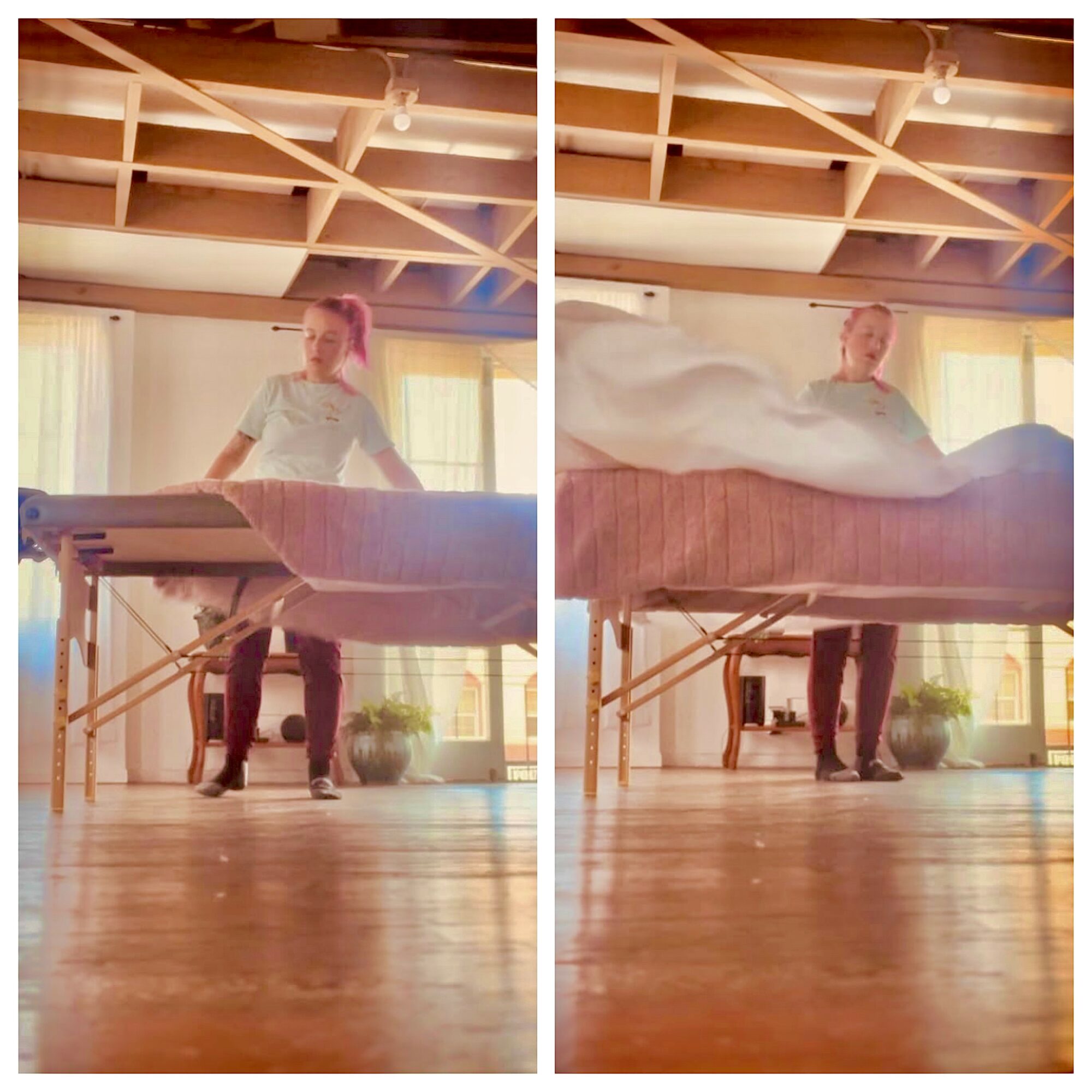

Today we’d like to introduce you to Elizabeth Mcirvin.
Hi Elizabeth, so excited to have you on the platform. So before we get into questions about your work-life, maybe you can bring our readers up to speed on your story and how you got to where you are today?
I started massage therapy when I was 18. I’m 34 now — that’s basically half my life spent helping other people feel human again. I’ve been through a lot of different phases in all that time — good jobs, bad jobs, weird spa stories, and a few moments that completely changed how I see people.
Honestly, I didn’t get into massage for some deep, spiritual reason. I did it because I needed a trade. I grew up in North Carolina, and college felt intimidating and expensive. I was making $7.25 an hour at Subway in 2011, and when I became a licensed massage therapist in 2012, I started making $19 an hour. It changed my life. I wasn’t swimming in cash, but for the first time as an adult, I wasn’t struggling as hard. I felt confident I could move to Los Angeles with the $1,500 I’d saved up, and I had a friend waiting for me in West Hollywood with a job recommendation to a spa where I ended up working for almost five years.
My career was really growing at that time and then, the pandemic hit. Afterward, wages went down or stayed stagnant. I don’t know if COVID changed how people feel about tipping, or if it’s just that tipping has become this outdated system that businesses still hide behind. Owners and managers will post job listings with hourly rates that secretly include estimated tips — which aren’t guaranteed at all. It’s a frustrating system that puts pressure on workers and clients, but not spa owners.
There was also a strange shift I started to notice that definitely put extra strain on my body. Before the pandemic, I’d get clients who were moderately stressed — a few knots, nothing major. But after the pandemic, I haven’t had a single person who’s even remotely relaxed. Everyone is extremely tight, anxious, and carrying tension that feels almost electric. After four years back at work, I feel more sore than I did in massage school — and back then, I didn’t even have the muscle capacity for multiple clients a day.
I’m definitely at the point now where my body and especially my heart is telling me to evolve. I came to Los Angeles to write and direct, and I’ve spent the past few years doing just that: writing TV pilots, short films, and a book; editing and directing music videos; and doing stand-up and improv to get comfortable using my own voice.
That being said, I don’t think I could ever fully stop. I thought I’d leave massage behind a long time ago, but it’s become such a part of me that I’ll probably always do it — if not just for my love ones.
It’s the life experience from this job that’s made me into a wider-perspective author. I don’t see how it couldn’t. I’ve massaged everyone: gay, straight, Republican, Democrat, Black, white, talkers, quiet weirdos, tall and short, big and small. I’ve seen it all. There’s not a walk of life out there that I don’t feel empathy for. Even though writing is my future, massage is still my anchor — even as I build the next chapter.
Would you say it’s been a smooth road, and if not what are some of the biggest challenges you’ve faced along the way?
My struggles have changed a lot throughout the years. When I was younger — more naïve and vulnerable — I dealt with a lot of sexism, harassment, and uncomfortable situations, both in my job and just being a woman out in the world. In my late 20s, it shifted more toward healing past traumas, managing PTSD, and trying to get a handle on anxiety. Around that time, I started doing improv and stand-up comedy, which was both terrifying and therapeutic. I used to literally black out on stage from nerves. I’d walk off and barely remember what I said — which was maybe for the best when I bombed.
But all those years when I first came to LA really helped me get over my fear of looking stupid. When you sit in the silence of an audience after your own joke falls flat, you start to shrug it off more and more. It’s never personal — it just means the idea wasn’t expressed in a way the audience could relate to. I think that’s what writing my book taught me too: how to tell the story of massage therapy so that anyone could read it, understand it, and connect to it.
Now, in my early 30s, life looks really different. I gave birth to my daughter last year, and that changed everything. This stage of my life is about reflection, using my voice more openly, and turning everything I’ve learned — the hard stuff, the funny stuff, the healing — into something that might help or resonate with other people. I want to advocate for massage therapists — our right to safety, respect, and financial security. But most of all, I want to dedicate my life to changing the way people think about massage therapy. The world just needs to meet one therapist who can talk about it in a way that’s relatable for everyone and hello, it’s me!
Thanks for sharing that. So, maybe next you can tell us a bit more about your work?
I think my niche as a massage therapist is that I’m a bit of a detective. If someone has mysterious pain that came from nowhere, I use my massage therapy investigation skills to find the culprit knot or rogue tight muscle. If someone wants to lie there in silence, I’m all for it — but usually, people like to talk out their pain. Who else can you really talk to openly for an hour about a lifetime of physical pain — sports injuries, car accidents, falls, broken bones, or surgeries gone wrong?
Doctors and Nurse Practitioners are, of course, the first stop you should make before seeking treatment. Although I believe massage therapy is essential to a happy, healthy life, self-care truly takes a village and I really encourage that for my clients. I don’t just tell them to keep coming to me and call it a day. No way. I help my clients explore different self-care practices they might not have considered before.
My strength is treating my clients how I would want to be treated. When I’m at my lowest and in pain, all I want is for someone to hear me out and care about my pain even if just for a moment.
On the creative side of my work, in writing, film, and comedy, I use that same instinct. I’ve realized I’m drawn to stories about people who are trying to hold it together on the surface while quietly unraveling underneath. My book “Stop Asking Me for a Happy Ending” came out of that same curiosity: what does healing really look like when you’re still in the middle of it?
I’m most proud of the fact that I’ve built a career on empathy. I don’t mean that in a soft way — empathy takes discipline. Whether it’s a stranger on my massage table or an audience watching one of my short films, I want them to feel like someone finally gets it. That’s what sets me apart: I’m not afraid to get a little uncomfortable if it means something true comes out of it.
Any advice for finding a mentor or networking in general?
Sometimes I’d massage some pretty cool industry people — directors, producers, and even a few acting legends — but I always had this little voice in my head discouraging me from combining my two careers. It felt unprofessional to mention my writing, short films, or book while I was there to help someone relax. And honestly, I wanted to earn my place through merit, not by asking for an easy way in. I’m stubborn like that. I just keep hoping that years of consistency, hard work, and general kindness will eventually pay off.
The real mentors in my life are my network of Hollywood moms. Believe it or not, there are women in this city still chasing their dreams as artists and raising babies. It’s not the easiest path, but it’s one of the most inspiring. I see them all at different stages — some with five- and seven-year-olds, some with toddlers, some who just gave birth — and they’re still out there doing stand-up, DJing, pitching TV pilots, and running small businesses.
Every time it gets hard, I think about them. These women remind me that there’s a whole tribe of us out here — moms, artists, hustlers — who will never give up on our dreams and will raise our kids to believe they don’t have to either.
Contact Info:
- Website: https://a.co/d/8PMFsk9
- Instagram: https://www.instagram.com/elizabethmcirvinlmt/
- Youtube: https://www.youtube.com/@elizabethmcirvin
- Other: https://open.spotify.com/album/4RGu32rlBiZhZJKRjh76Dy
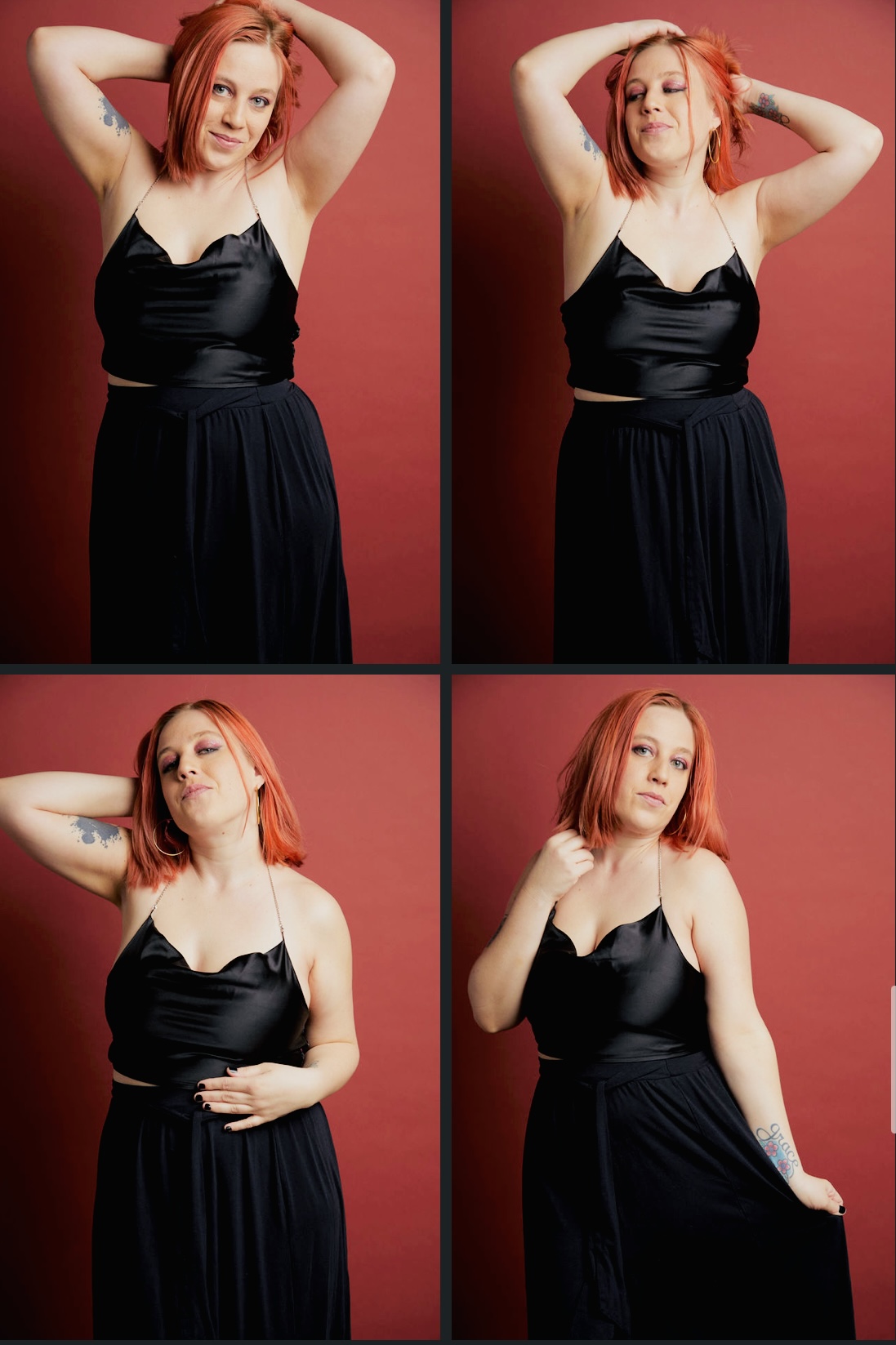
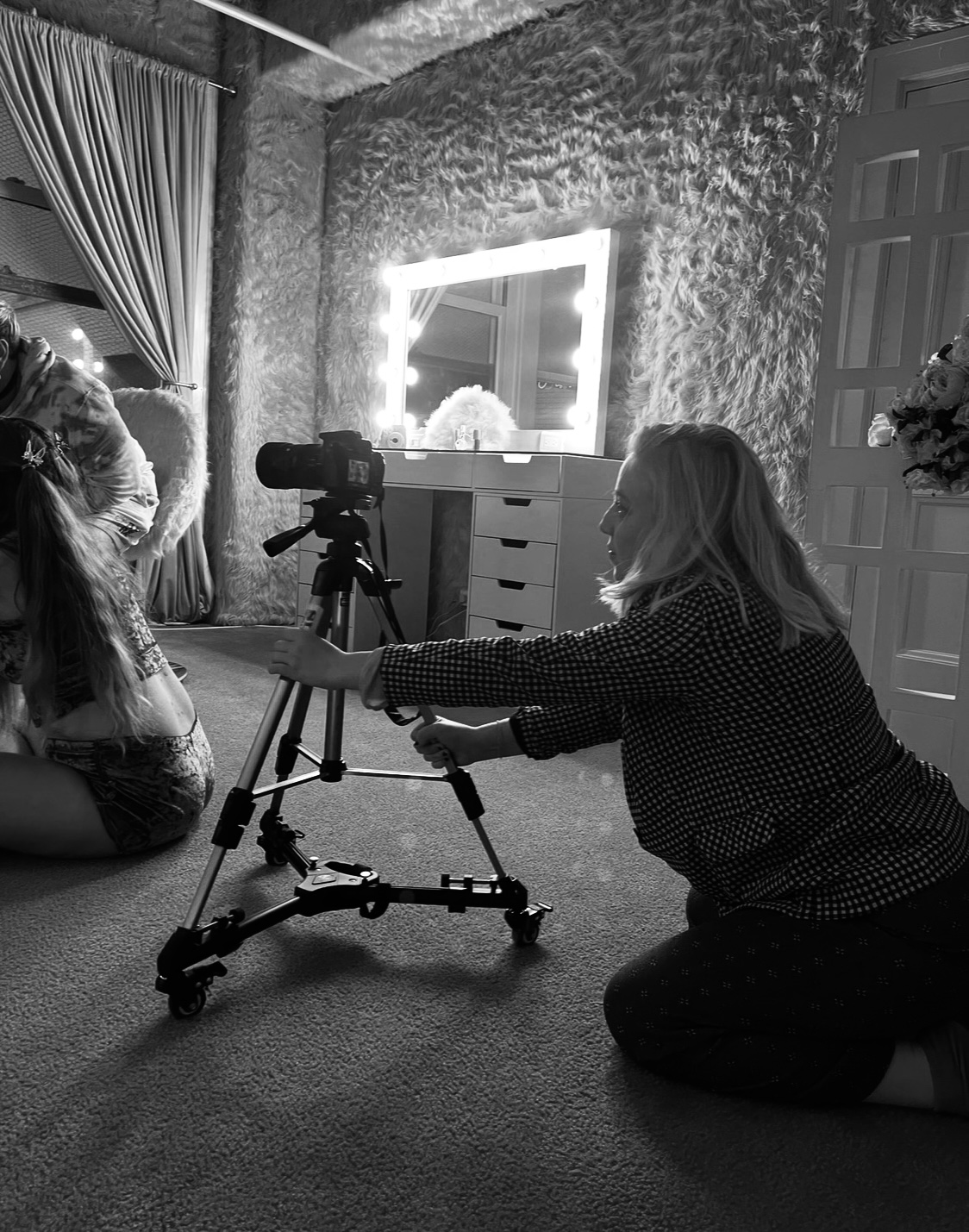

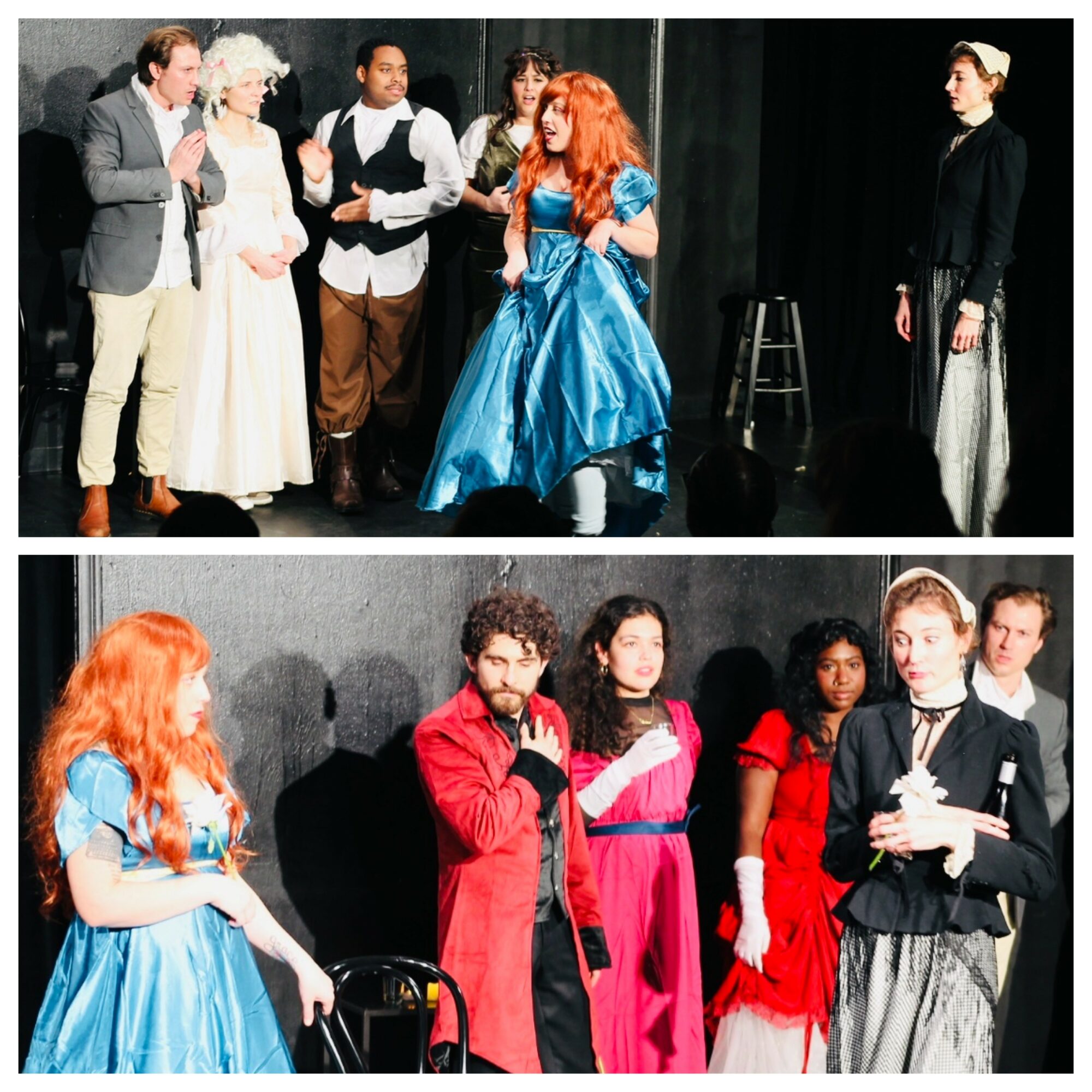
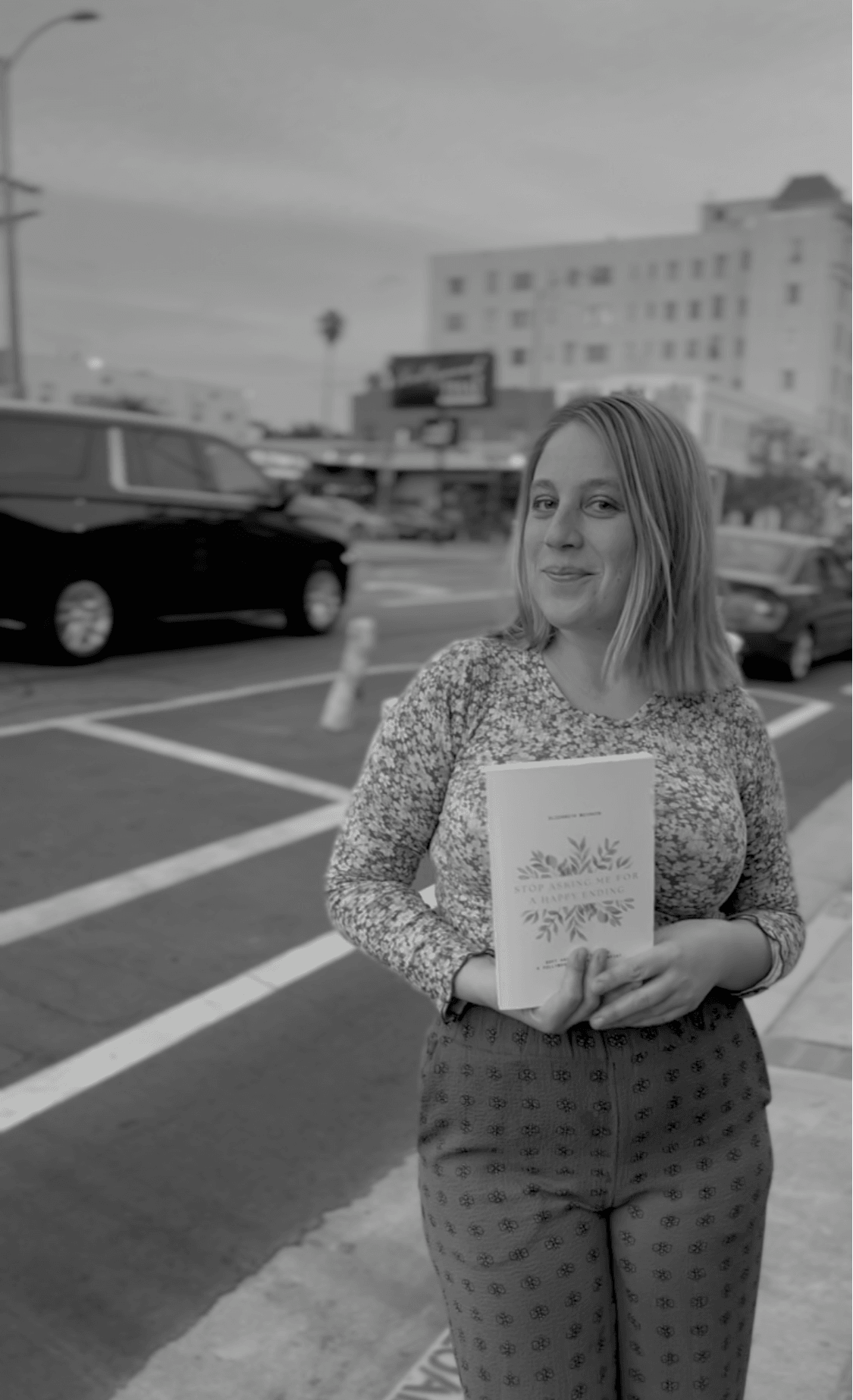
Image Credits
Red Background Photos – Gregory Wallace Photography
All others – Personal photos of Elizabeth Mcirvin














